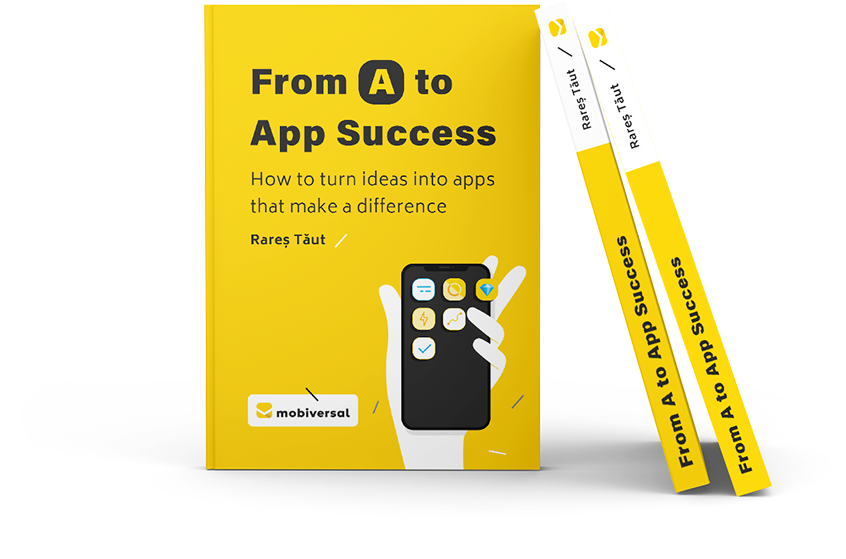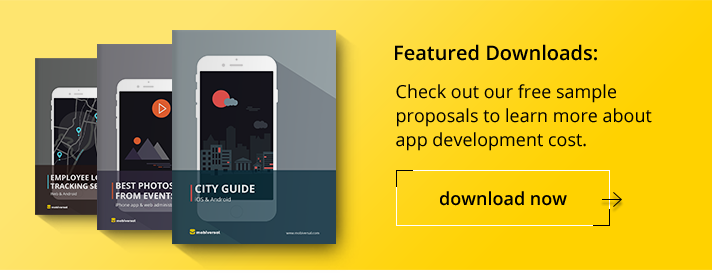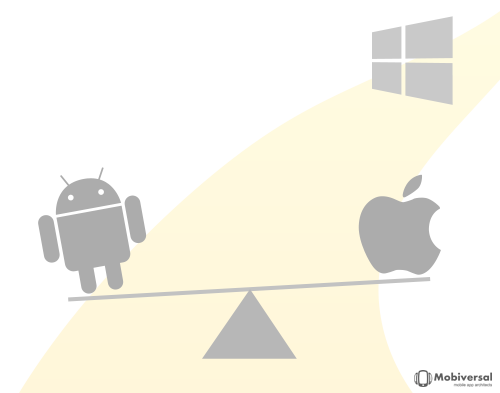7 App Experts on Developing for Android or iOS
According to a report released in November by research firm Gartner, Android as an operating system is dominating the overall market for smartphones with 82% market share. However iOS continues to dominate in monetization with a five-times-greater return rate for developers, when in comes to in-app purchases.
To help you decide what platform to choose first, Apple’s iOS or Google’s Android, I’ve talked about this issue with a couple of experts that have built applications for brands such as RunKeeper, Macy’s, Porsche, NFL, Bloomingdale’s, Forbes, or Lady Gaga. Please find below their views and also our opinion. Let’s dive in!
 Jordan Edelson – Appetizer Mobile
Jordan Edelson – Appetizer Mobile
“Android’s market share is ever increasing, but iOS still dominates in terms of having user’s that are willing to tap the “buy” button. Ideally, there should be a budget allocated for developing for both platforms, but if we were to pick and choose, we prefer to launch with iOS first.”
“You just look at where the users are, who’s gonna be using this product and then you just look at the research in terms of what the distribution of the operating systems is among those users. Most of the time in US, if we’re just gonna build one platform first, it’s iOS.”
Michael Watson – Mobiers
“Whilst it can’t be argued that Android is making some serious headway, looking at it from the developer’s point of view, the current scene still advocates building apps for iOS first. And you can owe it to the fragmentation that Android-based phones bring along.
Creating an app for Android means taking in stride the inconsistency in hardware calibration, as there is a huge diversity in the Android market in terms of the brands that sell Android phones. Contrarily, building an app for IOS would require a qualitative analysis of the exclusive iOS hardware only. Apparently, that makes it easier to develop an app for iOS since the developer is not being pulled in different directions. Moreover, the APIs of Android are bulky (for lack of a better word) and there is still a long way to go in matching up to the sophistication of iOS tools. Android 4 has surely made giant strides forward, but the glaring truth is that most SmartPhones are still using Android 2.x. So, developers can’t use the improved Android because it won’t be supported on the phones that run old APIs.
Also, it holds the development company in good stead by gauging the market response to the app by creating it on a platform that facilitates simpler development. If the app is happily lapped up by the iOS customers, it can be migrated to Android.”
Alin Merches – Mobiversal
“Worldwide market share of Android is 80%, iOS is 16-17% from the last stats (strictly speaking about smartphones …). Now, even though the Android marketshare is huge that doesn’t automatically mean that this is where the money flows in and out. That’s why we ask our customers first what idea app they have and what is the PURPOSE of the app. Is it the purpose of brand awareness among multiple people across the globe? Then definitely Android first is the option, as a free app. Is it to make money on a certain youngsters – Y generation market? Then iOS would be the choice. Do you want a game? What kind of game? In-app purchase business model? Etc, etc. All these questions help us decide what to choose first, so there is not a short and simple solution to this debate.
But from my perspective, seeing the history of requests in our company, I can say without a doubt there’s a change from 2 years ago when people barely had budget for the Android version, not many of them chose Android first. And as a final note, customers from US still choose iOS first because US is among the few countries where iOS has a big chunk of market share.
PS: Watch out for the Windows Mobile Phones; in many countries in Western Europe they have almost the same market share as iOS, so next year we already expect to have more and more requests from European customers for this platform.”
“Yes, Android has just taken over 80% of the smartphone market, and it means that we should pay more attention to the Android OS. However, it depends what countries and generations you are targeting. For example, if we are talking about the USA, more than 40% of smartphones in the country are iOS powered. Also, as recent studies show, youth is trending toward to iOS
Due to the huge device defragmentation, our first pick would be Android. Simply because it requires more testing on many devices. For clients that want to launch both Android and iOS app at one time, Android should go first because it’s easier to catch up with iPhone, which does not require such extensive testing. This way, launching Android first reduces the timeframe between the pilot app and runner-up app.
Besides, Android users have been neglected by so many app makers who always went with iPhone first. Handing Android the baton can finally bring some justice into the equation.
As many companies opt for iOS and Android at the same time, it’s really essential to handle the QA process properly. In terms of QA, we consider testing on real devices essential. Using emulators only will result in multiple bugs (especially when we are talking about Android, as there are so many different OS versions, screen resolutions, and other properties).”
“It depends on the app and the target market. Android has a lot of market share but it tends to be with customers that are more price sensitive. There are some products that would be more successful on Android and others that would be more successful on iOS. We work with our clients to help them make these decisions because ultimately we want the product to succeed.”
“It varies based on the application requirements and the goals of the company needing the apps. There are some cases where Android must be used, especially when dealing with deep hardware integrations or customized ROMs. There are other instances where there’s simply not enough funding to build on both platforms at once. Our general guidance is that if the resources are available to do so and it’s beneficial to be on both platforms, build for both in parallel.”
If you want to discover more on how the above companies are working with their clients to turn ideas into successful apps, download (no email required) our latest latest eBook: From A to App Success.











